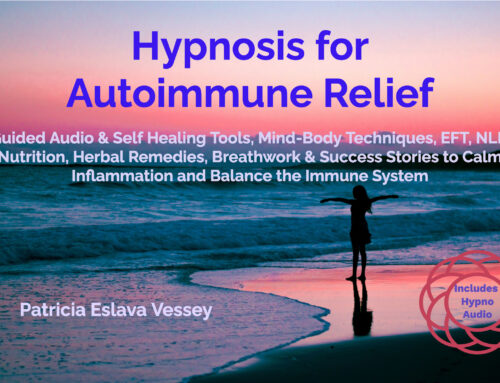 Why You May Be Having Trouble Sleeping and How to Fix It
Why You May Be Having Trouble Sleeping and How to Fix It
Are you a troubled sleeper and wonder why you have trouble sleeping? We’ve all been there at some point: tossing and turning, eyes wide open, desperately hoping for a good night’s sleep. If you find yourself in this frustrating scenario, you’re not alone. Sleep challenges are a common issue for various reasons. Let’s explore some of the common causes of sleep trouble and how to address them, including how hypnosis can be a game-changer in resolving these challenges.
- Stress and Anxiety
One of the biggest culprits of poor sleep is stress. When your mind is racing with worry about work, finances, or personal issues, it becomes difficult to relax and fall asleep. Using relaxation techniques such as deep breathing, mindfulness, or hypnosis can help you manage stress, calm your mind, and prepare for rest.
- Diet and Nutrition
Did you know your eating habits significantly impact your sleep patterns? Consuming caffeine or heavy meals close to bedtime can disrupt your sleep. If you need to eat, opt for sleep-friendly snacks like almonds, cherries, or bananas, and aim to maintain a balanced diet throughout the day.
- Sleeping Environment
Ensure your bedroom is a serene sanctuary for restful sleep. Factors such as room temperature, lighting, and noise can impact your ability to fall asleep. So, create a sleep environment that supports your ability to relax. For example, some people prefer a sleep environment that is dark, calm, and quiet. What feels relaxing to you? Additionally, investing in comfortable bedding can significantly enhance your ability to sleep.
- Bedtime Rituals
When you create a calming bedtime routine, it signals your body that it’s time to wind down. Activities such as reading, taking a warm bath, or listening to soothing music can be incredibly effective. Avoid electronic devices at least an hour before bed, as the blue light can interfere with melatonin production.
- Distractions and Screen Time
Distractions, especially from phones or TVs, can keep your mind active. Limit screen time and try to disconnect from electronic devices to help your brain switch to sleep mode.
- Medications and Health Challenges
Certain medications can interfere with sleep quality. If you suspect this might be an issue, discuss it with your healthcare provider. Additionally, health conditions like sleep apnea, depression, or chronic pain can affect sleep. Seeking medical advice to address these conditions is crucial.
- How Hypnosis Can Help
Hypnosis is an effective tool for tackling sleep issues. It works by guiding you into a deeply relaxed state, addressing underlying stress or anxiety, and reprogramming negative sleep patterns. A professional hypnosis session, or using sleep hypnosis recordings, can help improve your sleep quality by calming your mind and reducing the mental barriers to sleep.
Visit our store and purchase our highly popular and effective hypnosis recording to help you achieve the sleep you need. “Deep Restful Sleep”
For additional help with insomnia and sleep problems, go HERE.
Conclusion
Understanding why you’re having trouble sleeping is the first step toward better rest. By addressing factors like stress, diet, and Environment, you can create habits conducive to restful sleep. Incorporating hypnosis into your routine can provide the relaxation and mental reset needed to overcome sleep challenges, paving the way for peaceful nights and refreshed mornings.
Sleep well, and sweet dreams!
Click here to get on our list and receive additional tips, tools, and techniques!
 Wishing you the best always,
Wishing you the best always,
Patricia
**************************************
Patricia Eslava Vessey, PCC, CHt
Transformational Coach, Mindset Trainer, Hypnotherapist, NLP Master, Fitness Trainer, Author, Certified HeartMath Practitioner
INTEGRITY COACHING & TRAINING SYSTEMS
“Empowering You To Succeed”
integritycoachingandtraining.com
(206) 459-2898
Work With Me
These are challenging times for many. I’m here to support you. If you know deep inside it’s time to work through a challenge, let’s talk. I offer a complimentary consultation and strategy session for those who are feeling anxious, depressed, overwhelmed, or are ready to work through other issues. Use the link below or contact us via email, text, or call to discuss how hypno-coaching sessions can help.
ABOUT HYPNO-COACHING
Hypno-Coaching is an alternative treatment modality with a proven track record for success. It uses hypnosis, NLP, coaching, EFT, counseling principles, Mindfulness, and energy psychology to retrain the mind and body to accomplish your goals, whatever they may be.
Hypnotherapy can be the best choice in helping you better manage chronic medical problems such as pain, IBS, Fibromyalgia, anxiety, depression, phobias, smoking, weight, addictions, and other challenges. I also use hypnotherapy successfully to build confidence and enhance performance in various areas, including studying, sports, job interviews, and more. Hypno-Coaching can improve every area of your life.
Questions? Contact me and receive your free strategy session. Empower yourself, gain control, and achieve your goals. Call or text 206-459-2898 me now:





